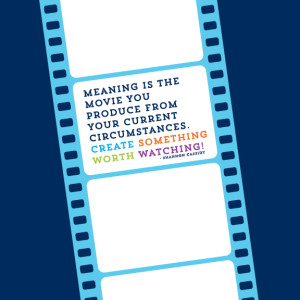There’s no contradicting the fact that a little laughter can lighten any situation.
We’ve all been in one of those situations: a tense disagreement between team members or a stressful day with a deadline looming. How these times get handled is very important to the overall well-being of a team. One way to handle them is to try and inject a little humor, a little levity, into the situation; to bring everyone back to reality.
There are a couple of advantages to using humor to break tension or build up an effective team:
- It builds trust and group bonding through a shared experience, something they can all look back on later and laugh about again. Just putting people together on a team doesn’t mean that they will bond. The shared experience of humor can go a long way to helping individuals build that feeling of being a part of a meaningful whole.
- It breaks the tension by taking people out of their usual comfort zones but doing so in a fun way that doesn’t threaten anybody’s position and creates open communication, improves morale and lowers stress.
- Humor or a humoristic situation puts all team members, including the leader, on an even playing field. If managers or team leaders are viewed as ‘regular people’, the rest of the team will be able to relate to them more effectively.
Why does laughter and humor matter?
Sophie Scott gets into the science of laughter in her TED talk: “Why we Laugh”. Laughter is, she points out, an important social cue: “ And when we laugh with people, we’re hardly ever actually laughing at jokes. You are laughing to show people that you understand them, that you agree with them, that you’re part of the same group as them. You’re laughing to show that you like them. You might even love them. You’re doing all that at the same time as talking to them, and the laughter is doing a lot of that emotional work for you. “
When you’re building or working within a team, humor and laughter can help individual team members to socialize to the group, creating a different level of connection than a ‘strictly business’ attitude would ever attain. Laughter also relaxes people physically, which can be very useful in a tense or stressful work environment.
“Everybody underestimates how often they laugh, and you’re doing something, when you laugh with people, that’s actually letting you access a really ancient evolutionary system that mammals have evolved to make and maintain social bonds, and clearly to regulate emotions, to make ourselves feel better.”
In other words, laughter is good for us, both individually and as a team.
How to engage humor to team build?
I think I’ll start with what not to do: don’t build up contrived, silly games that some of your staff find demeaning and only participate in because they feel they have to. Know your people: if you’ve got classic introverts in your group, forcing them to play a game every week, to get everyone’s laugh muscles working, is not going to be helpful.
Instead, look for the more real opportunities to engage in humor. It can be as simple as stocking up on some clever jokes that you saw online or sharing a meme from Facebook that will speak to the team members, or at least speak to their funny bones!
If you’re a team leader, self-deprecating humor can work wonders to encourage your team to see you as one of them. Make yourself the butt of the joke once in awhile, and you’ll see the other members responding.
While team-building retreats—out of the office and away from the day to day—can be great for getting a new group to understand one another and their individual strengths, it should not be at the expense of allowing a little bit of humor into the every day. Many organizations send their teams on these retreats, where they are expected to ‘let their hair down’ a little, but then it’s business as usual the minute the come back into the office. This defeats the purpose entirely. It’s a retreat, not Vegas: allow some of what happened at the retreat to filter back into the everyday, particularly anything that was humorous.
Do you use humor in team building? What works for you?



